Your Solar System is wrong
or: what flat-Earthers understand about science that most teachers miss
Quick — what’s wrong with this picture?
Imaginary Interlocutor: Well, the distance between the planets is way too short.
Sure, sure — but that’s just a detail. You’re missing the fundamental wrongness of this picture. (As a hint, just about every word in that definition — “planets orbiting the Sun” — is wrong.)
There was another comment on my ACX review of Kieran Egan’s The Educated Mind1 that stuck in my mind. I can’t find it now, but it went something like this:
As I read Egan’s paradigm, I’m flushed with thoughts of yes, surely this could change schooling as we know it! But then I lean back in my Eames Lounge Chair, stroke my beekeeper’s beard and think but how, concretely, would this look different than what we already do? In the end, I fear this is all just a tale told by an idiot, full of sound and fury, signifying nothing.
A lot of “educational theorizing” really does amount to words, words, words. Well, one of the claims that Egan makes is that
any subject
can be taught effectively
in some intellectually honest form
to any child
in any stage of development.
This is, obviously, an extraordinary claim.2 And extraordinary claims require extraordinary evidence.
To see if Egan really could deliver, and to really discover what an Egan-fueled approach to learning could be (if I didn’t need to teach to a test, or contort myself to the patterns of a school) I started Science is WEIRD three years ago.
Which means that most of my time has been spent with my head stuck deep into the wonders of physics, chemistry, biology, and astronomy. This, I think, gives me a way to answer the commenter’s point: I can give a peek into what Egan’s approach can do, in just one science lesson.
So: what is the Solar System, really?
By the end, you’ll see how nearly everyone misunderstands something as basic as this. And you’ll see how young kids (this lesson was designed for kids as young as eight) can quickly develop an intuitive understanding of some wickedly complex stuff.
1: “Planet” is a stupid word
Quick question — how many planets are there?
Imaginary Interlocutor: Yeah, I remember the whole “Pluto” thing. The answer’s “eight”.
No — the answer is “whatever we want it to be, because the word ‘planet’ means whatever we choose.”3
Originally, the answer was “seven” — Mercury, Venus, Mars, Jupiter, Saturn, the Sun, and the Moon.
I.I.: The Sun was never a planet.
Wrong! “Planet” meant “wanderer” — it was meant to refer to any of the big things that move across the big bowl of the sky.4 And even when Aristotle and Co. realized that the Earth was round and the sky wasn’t a bowl and changed the definition of “planet” to “a thing that orbits the Earth”, this list of seven planets didn’t change.
It was only in the 1600s that this changed, when Galileo proved once and for all that, ha ha, the Earth actually isn’t in the center of the Universe after all. Now a “planet” was “a thing that orbits the Sun”, and there were only six: Mercury, Venus, Mars, Jupiter, Saturn, and oh yes, Earth:
Then William Herschel found Uranus, and there were seven again. Then Piazzi discovered Ceres, and there were eight:
I.I.: What the heck is “Ceres”?
A planet between Mars and Jupiter. Then, around 1800, a flurry of new planets were found — Heinrich Olbers discovered Juno, Karl Harding discovered Pallas, and Heinrich Olbers (again, busy guy) discovered Vesta. They were all circling the Sun at similar distances, again between Mars and Jupiter.
I.I.: Ah, the asteroid belt! But those weren’t ever planets.
Yup — this was the discovery of the asteroid belt! But asteroids were absolutely considered planets by mainstream scientists, who were totally cool with the idea of there being hundreds of planets. In fact (if Sniffnoy is to be believed, and I hope he is, because this is so cool) the people who objected to this definition of “planet” weren’t the scientists but the astrologers, because having hundreds of planets made it too hard to do astrological predictions.
Anyhow, then Galle discovered Neptune, and Tombaugh discovered Pluto, and heigh-ho the gang’s all here!5
I.I.: Once again, Pluto isn’t a planet.
Not according to the International Astrological Astronomical Union; it’s now considered a “dwarf planet”. But they created the category of “dwarf planet” because, once again, they had begun to discover what they thought was too many things orbiting way the heck out there in the Kuiper Belt.6 Why? I’m guessing enough astrologers astronomers were uncomfortable with not having a clear answer to give to us unwashed members of the public when we asked “how many planets are in our Solar System?”7
This is all to say that any simple answer to the question “how many planets are in our Solar System?” hides as much about the world as it reveals.
2: “The Sun” is a dumb word, too
You probably knew this — after all, it’s a star. The fact that we have an unrelated word for “the Sun” is also a holdover from our flat-Earth past, when we thought that the stars were just fireflies glued to the big dome of the sky. But actually, since this post is just about Solar System, that particular wrongness doesn’t matter so much.
But there’s something else off about saying that the Solar System consists of two sorts of objects — “planets” and “the Sun”. It’s that this might not be the actual most useful categories to sort all the objects into!
Especially when there’s two much better categories.
I.I.: And those better categories would be…?
“Balls of rock” and “balls of air”.
“Balls of rock” would include Mercury, Venus, Earth, Mars, all the stuff in the asteroid belt (Ceres included), and all the stuff in the Kuiper Belt (Pluto included). And all the stuff in the Oort Cloud.8 And all the moons.9
“Balls of air” would include Jupiter, Saturn, Uranus, Neptune… and the Sun!

I.I.: Not everything in space is a ball, Brandon!
Indeed, the smaller astronomical bodies aren’t uniformly round:
But are “balls” uniformly round?
3: Search your feelings, you know it to be true: the word “gas” never helped nobody
I.I.: No no no no — the Sun isn’t a ball of air! None of those are balls of air — they’re made of gas.
Yeah, let’s talk about gas.
The traditional category for Jupiter, Saturn, Uranus, and Neptune is “gas giants”.10 This is defensible: based on the definition of “gas”, it’s pretty literally true. Its only trouble comes from what people imagine when they hear the word “gas”, look at a photo of Jupiter, and imagine “that stuff that comes out of smoke grenades” or “the stuff that clouds are made of”.
The funny thing is: the stuff in smoke that you can see isn’t a gas (it’s a bunch of tiny solids). Ditto with clouds (it’s a bunch of tiny liquid balls).
When we look at a planet and here it’s made of “gas”, we imagine it being made out of stuff denser than air. Otherwise… it wouldn’t really be a planet, now would it?
I.I.: Exactly — the gas on Jupiter is much denser than the air here.
Well, if you go deep enough, yes. The average density of Jupiter’s atmosphere is about as dense as water; the bottom might be 20 times the density of our air.11
But that’s because Jupiter is big. It’s is almost entirely made of stuff that’s lighter than air — hydrogen and helium. Gravity squeezes it all together; if you liberated a big box of Jupiter’s atmosphere, you could bring it back to Earth and use it to lift up a blimp.
The word “gas”, when used to describe the colored stripes of Jupiter, makes people picture something dense, when in fact they should be picturing something incredibly un-dense. The word “air” makes us imagine something much closer to the truth.
I.I.: But if I’ve learned only one thing from the update to the classic They Might Be Giants song, the Sun is not a mass of incandescent gas — it’s made of plasma.
True! And a lot of science-geeky kids pointed this out to me. But when I asked them what “plasma” was, they didn’t know. For them, “plasma” was just a word — at best, it wasn’t helping them actually imagine the Sun; at worst, it was taking the place of imagining the Sun.12
4: The Sun is a planet; fight me
I.I.: Back to the Sun: it’s not anything like a planet. It’s bigger. Glow-y-er. Thermonuclear-er!
It is indeed bigger, brighter, and hotter — but those are differences of degree, not of kind. Do you know what you’d get if you put two Jupiters together? Okay, just a really big Jupiter. But do you know what you’d get if you put a hundred Jupiters together? A friggin’ star.
Gas giants like Jupiter and Saturn are made of the exact same stuff as stars — mostly a mix of hydrogen and helium. If there were larger, they’d be brown dwarf stars: for this reason, astronomers sometimes classify them as “failed stars”. If this seems a bit mean, well, it’s just as correct to flip it around and say that a star is a super-successful gas giant:
The Sun is a super-Jupiter.
And there’s an important reason to emphasize the continuity between gas giants and stars.
The Sun is one of the most strikingly unique things that we experience on Earth. It’s blindingly bright — no fire comes close. It feels magic. So, if we’re trying to be scientific, it feels natural to think the Sun is made of some exotic type of material, something far removed from the boring dross that makes up the planets. But the truth is that the stuff that makes up the Sun is utterly mundane — it’s literally the most common stuff in the Universe.13 Drawing our categories to lump the Sun in with the “balls of air” isn’t just technically defensible, it’s pedagogically powerful. It upends our intuitive understandings of the essence of reality and brings us closer to the modern scientific understanding.
I.I.: Perhaps. But I’m worried that, if we draw new categories like this, students will be confused.
EXACTLY! But more on this below.
5: Orbiting: or, why becoming an astronaut isn’t the perfect weight-loss solution you hoped for
Let’s go back to our original picture.
So far we’ve rejiggered our categories, saying that “planets” and “the Sun” aren’t the way to think about the Solar System, but we haven’t actually said what’s wrong about the image. Have you figured it out yet? Here’s a hint:
“Orbit” is the worst word of all.
“Orbit” comes from “orb”, meaning “the see-through shells that hold up the planets so they don’t fall down on the Earth”.
Again, this comes from an understanding of the Universe in which Earth is the center of Everything. This particular conception of literal shells (aka “the spheres”, which you still occasionally hear of in the phrase “the music of the spheres”), was smashed as people realized that comets zipped around far outside our atmosphere, and would literally smash any literal shells.14
It’s ancient, it’s pre-Galileo, and it’s really very wrong.
And this old picture of the Universe doesn’t only survive in our word “orbit”; it continues on in the way we still conceive of astronomy. It’s an error that’s enshrined in literally every picture of the Solar System I’ve ever seen.
I.I.: Okay, I’ll bite: what’s the error?
First, a question for you: what does hold up Earth, so it doesn’t fall down into the Sun?
I.I.: Well, it’s our orbits.
But what is an orbit, and why doesn’t the Sun’s gravity pull Earth down?
I.I.: …
…
…
…I’ve got nothing.
How about this: how much does an astronaut weigh, when he’s doing a spacewalk?
I.I.: Zero, zilch — they’re weightless.
Wrong! If that astronaut weighed 200 pounds at home, he still weighs 180 pounds in space.
I.I.: …Now I’m really quite confused.
Excellent. So was Galileo — the guy who figured out that the planets “orbited” the Sun couldn’t figure out what was making them move, or what was holding them up.
The big realization of what held together the Solar System didn’t come until more than thirty years after Galileo stood in front of the Inquisition. The massive, cosmos-creating insight fell to a prickly 22-year-old undergrad who was ditching school on account of the plague: Isaac Newton.15

And of course you know the whole apple story. The anecdote may or may not be true; it was, in any case, a story that Newton told to people as an old man. In any case, what he realized was this:
The Moon is falling around the Earth.
The planets are falling around the Sun.
I.I.: You mean he discovered “gravity”.
No — he invented the word “gravity” to describe what he had discovered: the thing an apple does when it falls toward the ground is the exact same thing that the planets are doing to the Sun!16 “Orbiting” is just a fancy word that means “falling and missing”.
Everything is falling: with this, Newton did away with the need for a bespoke cosmology crafted in the Creation. He opened the door for us to try to understand everything as following one set of patterns: on Earth, as it is in heaven.
Do you see the problem with how we picture the Solar System? Well, what direction do you fall in? By definition: you fall down. But what direction do we usually picture planets orbiting the Sun? Sideways!
How should we draw the planets and the Sun? If we’re trying to integrate Newton’s insight, we should draw the Sun beneath the planets, because they’re always falling down! Putting them on the side is just a thoughtless carry-over from when we thought they were being carted around on crystalline shells.
So, finally, let’s present the correct view of the Solar System:
I.I.: But there’s no gravity in space!
Smart students — the same kids who think it’s obvious that “gravity” is why the planets orbit the Sun — tell me this all the time. There’s absolutely gravity in space — gravity is the thing that holds planets and moons and solar systems and galaxies together! (As this is literally Newton’s insight, it’s a pretty telling sign that smart kids don’t actually understand much of what they tell teachers.)
Astronauts appear weightless because they’re falling.
So why doesn’t that falling astronaut still weigh 200 pounds? The farther away you go from a planet, the less of its gravity you’ll feel. People on the International Space Station are farther away from Earth than I’ve ever been, but not oh-so far: they still experience 90% of its gravity. (That’s why they fall so fast — look up in the sky the next night they zip over you.)
I.I.: Don’t planets orbit in circles, though?
Warning: a math-y explanation is coming.
Scientists used to think that planets traveled in perfect circles. (Why? They’d be so much cooler that way.) Then, around 1600, Johannes Kepler jumped in and smashed that system up, squinting deep into the void and proving that planets travel in ellipses — basically, ovals.
I remember learning this as a kid, but I never understood why it was important. In high school physics, I learned that when we jump up to dunk a basketball (or shoot cannons up at passing planes), we fall in parabolas. An ellipse is definitely a different shape than a parabola. When I crafted this lesson, I wondered what was up with that.
Talking to an Actually Smart Friend, I realized that what I had been taught wasn’t a smidge off — a “parabola” would only precisely describe how something would fall above a flat, infinitely-wide Earth. An ellipse gets the answer on our round Earth perfectly. (We only use parabolas because they’re simpler, and we’re lazy. In the end, it turns out a parabola is a special kind of ellipse — an ellipse with one of its foci set to infinity.)
Now, the difference between them isn’t usually enough to matter for creatures as small as we, jumping our tiny jumpshots and shooting our tiny cannonballs at tiny airplanes. It’s only when something is falling large enough distances that ellipses need to be brought back in.
I.I.: Let’s just pretend I understood all that and never mention it again. Here’s a bigger problem: to say Earth always falls “down” makes no sense — once it got to the bottom, it’d start falling “up”.
No — its down will change.
When I was teaching this part of the lesson, a student objected, saying that there’s no up or down in space. No, I corrected her, this is yet another hold-over from our flat-Earth language.17 When you’re in space, “which direction is down?” might just be the most important question.18
For you, the Earth is down.
For the Earth, the Sun is down.
For the Sun, the center of the Milky Way is down.
For the Milky Way, the Andromeda Galaxy is down.
6: Where’s the Egan?
Way (way) back at the top, I said that the purpose of this little dissection of a lesson was to show how Egan-izing science can provide profound understandings of the science, even for kids as young as third grade.19
And, as a reminder, the purpose of this whole newsletter is to explore how Kieran Egan’s new vision of education — which means understanding where humans come from, what we are, and what matters to us — gives us a guide to reinventing the whole curriculum.
But where does Egan’s approach come into this? What’s so Egan about this?
At the very center of Egan’s paradigm is this commonsense observation:
Some formats of information are special.
Egan noticed that these formats, which he called “tools”,20 could be grouped by the age that people often mastered them. These groups could be called “kinds of understanding” — or, to be cute, “toolkits”. Hence, this image (from my book review) —

So: what tools is this lesson built on? The first four are from the Mythic toolkit — which is why this lesson is so amenable to young kids.
First, the whole thing revolves around a riddle: “what’s wrong with this image of the Solar System?” (Riddles are probably the tool I lean on the most in my science teaching. I really should have put “riddles” in the graphic above; alas, there was only so much space in those colorful rectangles).
Second, the riddle is itself grounded in a binary opposite, namely: stupid vs. smart. If you take a look back through the post, you might spot words like “wrong”, “stupid”, “dumb”, “error”, and “imbecilic”. That’s not by chance — I crafted the whole lesson around the notion that even very educated scientists are using foolish language. Even the subtitle got in on the fun: “what flat-Earthers understand about science that most teachers miss”.
Third is metaphors. What’s unusual about this lesson, actually, is that it didn’t use metaphors so much as it savagely ripped into other people’s metaphors and then proposed some new metaphors that maybe were literally true.
Saturn is made of air, not gas. Planets are falling, not being pulled by gravity. Planets are balls, not spheres.
I.I.: Actually I’ve been meaning to ask about that one — why say planets are “balls”, rather than “spheres”?
That’s a great question that helps get to the heart of why metaphors are so useful in the first place.
First and foremost, when students hear “sphere”, they start thinking about theoretical math stuff, and stop thinking about tangible real-world objects. They believe that they’re thinking scientifically, when in fact they’re moving away from imagining real astronomical objects.21
Even taken as math, planets and stars aren’t literally “spheres” — a “sphere” is understood to be a perfect, Euclidean shape, and a thing like Earth (as xkcd reminds us) is a wonkier thing entirely.
The kicker: dogs in ancient Greece fetched spheres. The word “sphere” is just the Greek word for “ball”!
And the fourth tool is simple stories. Again and again, I tried to avoid passive constructions like “Uranus was found”; I tried to make it clear that events were achievements made by people who had goals.
Simple stories like these, in science, seem load-bearing. Someone might object to this — obviously the shape of the Solar System would be the same whether or not humans had ever evolved. However, the purpose of “science” class isn’t just to understand facts about the Universe — it’s also to understand how we can figure more facts out. And one of the lessons of the history of science is that (to riff on Lysander, in A Midsummer Night’s Dream)
the course of true science never did run smooth.
That’s important for kids to learn! The story of science is smart people making stupid mistakes, which their students slowly correct. And it’s helpful to hear the specific errors which scientists (especially the ancient ones) made, because they often resemble the assumptions that students start with. (The world seems flat, Jupiter looks like it’s a solid, it seems we’re in the middle of the Universe, and so on.)
That is: scientists’ mistakes are ways for students to notice their own mistakes.
The next two tools were from the Romantic Toolkit: gossip and heroes. I tried to use both when I described Isaac Newton: for someone cracking open the secrets of the Universe, he was ridiculously young, and in a rather silly place. Frankly, I could have brought in more “gossip” by including more personal details: his parents had died when he was young, and so the apple orchard he was sitting in belonged to his aunt and uncle. Before he went to Cambridge, he hated school. He was socially inept and infuriated the people he worked with; he made enemies more readily than friends. And frankly I could have improved the “heroes”, too, by going in the details of how Galileo had failed to understand why the planets moved, and how Newton struggled with the question until he found the answer.
And the final tools were a smattering from the Philosophic Toolkit: dueling schemes, careful categories & definitions, and finding one’s place in the Universe. These seem obvious enough that I won’t belabor them — but I will point out how naturally in a science lesson the Philosophic Understanding can flow when the earlier toolkits are put to use.
(God in Heaven, I love talking about all these tools. Someday, some way, I’ll write more about them here. But if you’re interested in learning more about them now, looking at Annabella’s original chart might be a good start.)
7: The biggest tool of all
There’s one other tool that I’m not even sure we should think of as a “tool” — in my head, it’s more closely related to “the entire purpose of education, and what the Devil are we doing if we don’t start with this?”
It’s also the answer to that age-old question,
what do flat-Earthers understand about the Solar System that most science teachers miss?
By now, you might be able to guess what it is. Care to try? I’ll give you a minute.
(Just givin’ some room here…)
(…so you don’t see the answer…)
(…okay, that’ll do it.)
It’s this:
The mainstream scientific conception of the Solar System is very, VERY weird.
It’s almost entirely unintuitive. It’s nothing like what anyone standing at the bottom of this charming gravity well that we call “Earth” would ever dream of on their own.22
What “down” means seems obvious, but it’s not. That more than 1,000 Earths fit inside one of those colored shiny fast-moving dots in the night sky is bizarre. That you and I and my cat just fell down 18 miles in the last second sounds insane!
Among the many things I love about the flat-Earth community (which is something that probably deserves its own post), one of the greatest is that they have the courage to point out just how ridiculous mainstream science sounds. When we forget this — when we think of science as a mass of knowledge to memorize (if we’re Traditionalists) or concepts to understand (if we’re Progressivists), we shirk from our calling — to guide kids on the adventure of seeing the world as it truly is, given inspiration and succor by those who set out on the journey before us.
8: Objections!
Yes, let’s.
I.I.: A lot of this sounds very avant-garde, but I worry that it would really confuse kids, especially young ones.
You know who else was confused? Aristotle. Ptolemy. Copernicus. Galileo. Even Newton.23 When it comes to the big picture of the Universe, if you’re not confused, you’re not paying attention.
Now, obviously, maximal confusion isn’t the ultimate goal of education. But — especially when combined with some of the tools of Mythic understanding — I think it’s one of the more powerful ways to achieve that goal.
Little observations like “for you, Earth is down; for the Earth, the Sun is down” serve as their own riddles. They stick in the memory. At the oddest times — flipping pancakes, walking the dog — the leap out and command our attention. (This is why, I think, Egan played with the term bonnes àl penser — it’s a French phrase that translates to something like “things that are good to think with”.) They’re things that kids can swap with their siblings, puzzle over with their parents, and even make their own breakthrough with, years later, in a totally different domain. (Eureka! cries the student in a music appreciation class listening to Gustav Holt’s “Mars, Bringer of War”. THAT’S why they called the red planet “Mars”!)
I.I.: I want to take issue with some of those categories you mentioned before. For example, what about planets that contain liquid water? A liquid isn’t rock or gas or air or whatever! And what about comets, covered in ice?
Yes! Now you’re seeing how unusual it is to have liquid on the surface of a planet — this is a crucial piece of astrobiology!
“All models are false, some models are useful”, as the statistician George Box said. The power of good categories is that they make something complex so easy to think about that we do notice the things that don’t fit in, like liquid water.
(Not ice, though. Ice is a rock. That’s a hill I’ll die on.24)
I.I.: All this “let’s say balls instead of spheres” talk has me thinking you’re avoiding hard terminology in an attempt to be “arch”. While I personally find it rather droll (and might even be willing to give you a slow, ironically-ironic hand-clap in appreciation), deep down I’m worried that you’ll infantilize my child. Kids need to learn the traditional terminology that others around them will use, otherwise they’ll be mocked the first day of freshman science, drop out of college, and spend their days smoking dope and watching PBS “Space Time” videos.
Are you… is this ironic?
I.I.: Man, I don’t even know anymore.
Don’t mistake me as saying that we should forbid students from using words like “gas” and “sphere” and “planet” — I assume that’s impossible (and would probably have all the bad effects you’re imagining).
What I am saying is that those terms don’t always do a great job communicating the truth of the topic. They’re a mess of careless categories and bad metaphors. That doesn’t mean that kids should avoid them — it means that they should master them. And to master them, it helps to understand how those terms are historically contingent. In other words, they should learn the stories behind the terms.
I.I.: Your lesson presupposes a basic understanding of the Solar System.
True! (Remember, I made it for kids 8–18.) But kids can get a basic understanding in twenty minutes of video from good YouTube channels.
What should kids younger than that learn about the Solar System? That’s a really interesting question, one that I need to ponder as I begin to create an Egan-fueled elementary school framework for homeschoolers.
I.I.: Not enough teachers could teach like this — not enough, at least, for Egan schooling to become a mass movement.
But some can, and they can create lessons that others can use, and use beautifully.
Right now (for example) I’ve been creating this version of the Science is WEIRD supercurriculum for families (a lot of whom are homeschoolers). I’d love to spend a summer re-shooting them to be classroom-ready. If we did that, we could build in all sorts of stuff that in-person teachers could expand upon — debates to have, ways to turn classrooms into scale models of the Solar System, that sort of thing.
I understand that the network of Acton Schools work on something like a marketplace of curriculum makers. I think a network of Egan schools could do much the same.
(Oh, if you’d like to see the actual version of the lesson I’m talking about, you can right here. Usually that’s a thing people pay for! But, goodness, you’ve read this long, you’ve earned it. Also, you might want to take a look at the Deep Dive PDF that we made to accompany it.)
9: So what?
Now you understand what the Solar System is like — so what?
Well: the Solar System is one of the more basic things we learn about in school. If you’re an educated person, the Solar System seems obvious… and yet we can see that our common educated understanding is largely a misunderstanding. Our normal picture of the Solar System may not be 180º off, but it’s definitely tilted 90º to the left.
And I promise you that the Solar System is not alone in this. My experience teaching Egan-fueled classes is that almost everything that smart people “know” about science is off to a similar degree.
This is just one lesson (designed to be given in 90 minutes, and be followed by activities that last a week), but it packs an intellectual wallop. In just one year of science, kids could get (in Science is WEIRD, do get) 30x this much. And not just about astronomy — about physics, chemistry, Earth science, microbiology, physiology, and zoology.
And I’ve been emphasizing the conceptual richness of this, but the emotional side matters, too. When science is presented with these tools, kids begin to care. They see that they can be part of an epic story of scientific struggle, and that even the cleverest people in the world are usually wrong wrong wrong about so many things.
But most of all, this goes beyond science. Imagine math lessons, rich in these tools, that turn students’ understandings of the world upside down. Imagine literature, history, spelling, art, law, and cooking. Imagine gym class!
Imagine a whole experience of schooling that’s been Eganized.
That’s the future that I — and quite a few people reading this newsletter — are working toward.
…you’re still here?
Wow! This post has attracted a lot of attention.
If you’re new to the newsletter, you should know that there are more posts like this coming — not just in science, but math, writing, and more.
It’s still pretty new, and there’s still time to be a completist. But in the short-term, you might be interested in what I see as the foundational post — “The Hole in the Heart of Education”. (It’s short.) Or you might be interested in my explanation of a tool I created to help kids fall in love with math — “How to Build a Deep Practice Book”. (It’s, um, not short.)
In the comments, feel free to ask questions about the Solar System or how Eganizing works, or to push back on any of what I’ve said.
Oh! I wrote this particular post with the notion that, y’know, maybe other people who teach science might like to read it! If you know of someone who does — feel free to share it, and ask their opinions on some of the wilder stuff in it. Might be a fun way to spark good conversation.
As always, I hope you find these ideas as exciting as I do.
To be clear, Egan borrowed this quote from the great educational psychologist Jerome Bruner, who was criticized when he said it in the 1960s for seeming to ignore the challenges faced by kids in abject poverty.
And if you haven’t read Scott Alexander’s insightful, hilarious essay “The Categories Were Made for Man, Not Man for the Categories”, now’s as good a time as you’re gonna find! It was my first introduction to Slate Star Codex, and I re-read it regularly.
Not the stars. They move together, keeping their pattern. Each planet, meanwhile, has its own speed.
A delightful pattern of the Solar System is the chain of mythological genealogy: Ares, Zeus, Cronus, and Ouranos — or, with their Roman names, Mars is the son of Jupiter, Jupiter is the son of Saturn, and Saturn is the son of Uranus. Uranus didn’t have a father, which is why the next planet discovered was named George. I swear I am not making this up.
Which I think of as “Asteroid Belt: The Sequel!”
Maybe you think I’m being too hard on the International Astronomical Union? Screw them — they killed Pluto!
I didn’t have time to mention the Oort Cloud in the lesson, which has haunted me ever since.
“Wait”, you’re asking, “wouldn’t it be better to say that the Solar System consists of three sorts of things — the Sun, the planets, and the moons?!” I, too, once thought as you do — this was before I discovered that some moons used to be planets. Turns out that “moon” isn’t something you are, it’s something you do.
In the 1990’s, the last two were understood to be a subtype of gas giant; more recently, they’ve been given their own category as “ice giants”. But as it’s hard for me to imagine a more moronically unhelpful term than this — they’re not made of ice in any way that any human would imagine upon hearing that term — so I’m going to leave this one alone. At some point this becomes shooting fish in a barrel.
This number is almost certainly too small. Jupiter’s composition is actually way more complicated than I can lay out at the moment — we say that it has an “atmosphere”, but it turns out that the “atmosphere” is made of the same stuff as the rest of the planet — it just gets so heavy far down that it’s gradually squeezed into weird forms of matter. Even if we imagine a bright line separating “atmosphere” from “the Lovecraftian horror below the atmosphere”, I think the real density at the “bottom of the atmosphere” is much, much higher than I listed above. If anyone can figure out the real numbers, feel free to let me know — I’ll update this when I find out.
I’m reminded of Alan Alda’s famous story of when he asked his chemistry teacher about fire: “Before, I didn’t know what fire was. Now, I didn’t know what ‘oxidation’ was, too.”
Excluding dark energy and dark matter, because we always exclude those.
People used to think that comets were atmospheric phenomena, like hailstorms and tornados. This is why the word “meteorology” sounds like it’s about “meteors”… and why the word “meteors” is stupid, as it just means “asteroids or comets, when they zip through our atmosphere”. Again, shooting fish in a barrel. Time to move on.
Fine, he wasn’t “ditching” — Cambridge was closed for the pandemic. Details, details.
Well, Newton didn’t exactly invent the word “gravity” — in his time, it meant “seriousness”. He used it as a metaphor, and re-invented it as a scientific term.
SO MUCH of our language assumes the Earth is flat, but that’s another post.
Also important: “how much air did we pack?” and “do you think Alien is based on a true story?”
To be clear, we advertise the classes for kids 8–18; we have a few older, and a few younger.
Well, eventually. He struggled to find a term that encapsulated these; he played around with terms like “formats”, “genres”, and “bonnes à penser” before eventually settling on “cultural/cognitive tools” (or just “tools” for short), which I think he was still slightly miffed by.
This feels like what Eliezer is talking about in his Sequences post on “fake explanations”.
And in fact, of the millions of people who lived before Newton and Galileo and Aristotle, approximately 0.00 of them figured it out anything beyond “the Earth is a sphere”. As usual, al-Hazen came closest. (Is this the second post in a row that al-Hazen has come up in? Wow, he’s the Annabella Cant of the Islamic Golden Age.)
It was Newton, who, when asked what caused gravity, wrote “I feign no hypotheses”. Dude knew when to stop when he was ahead.








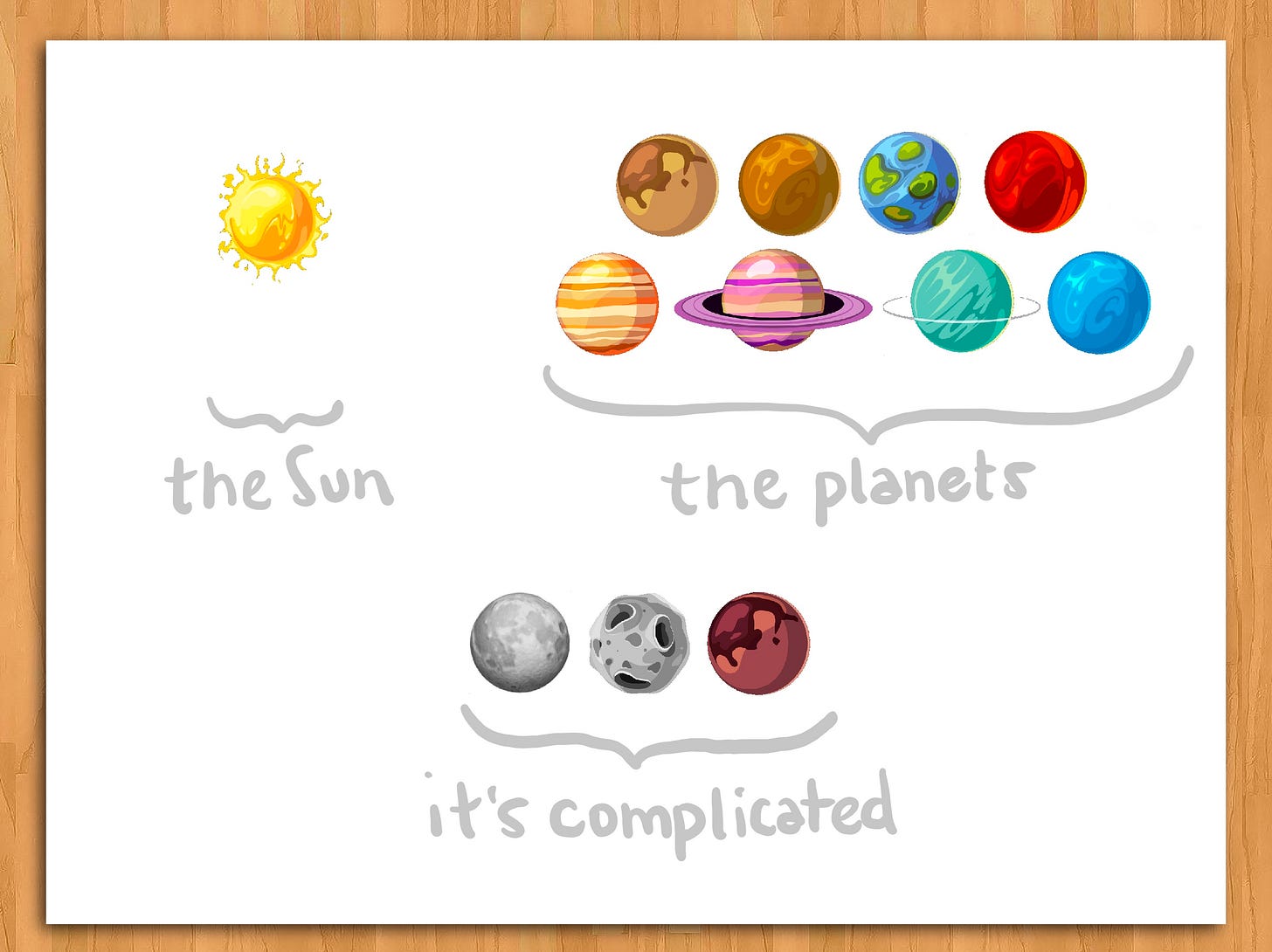
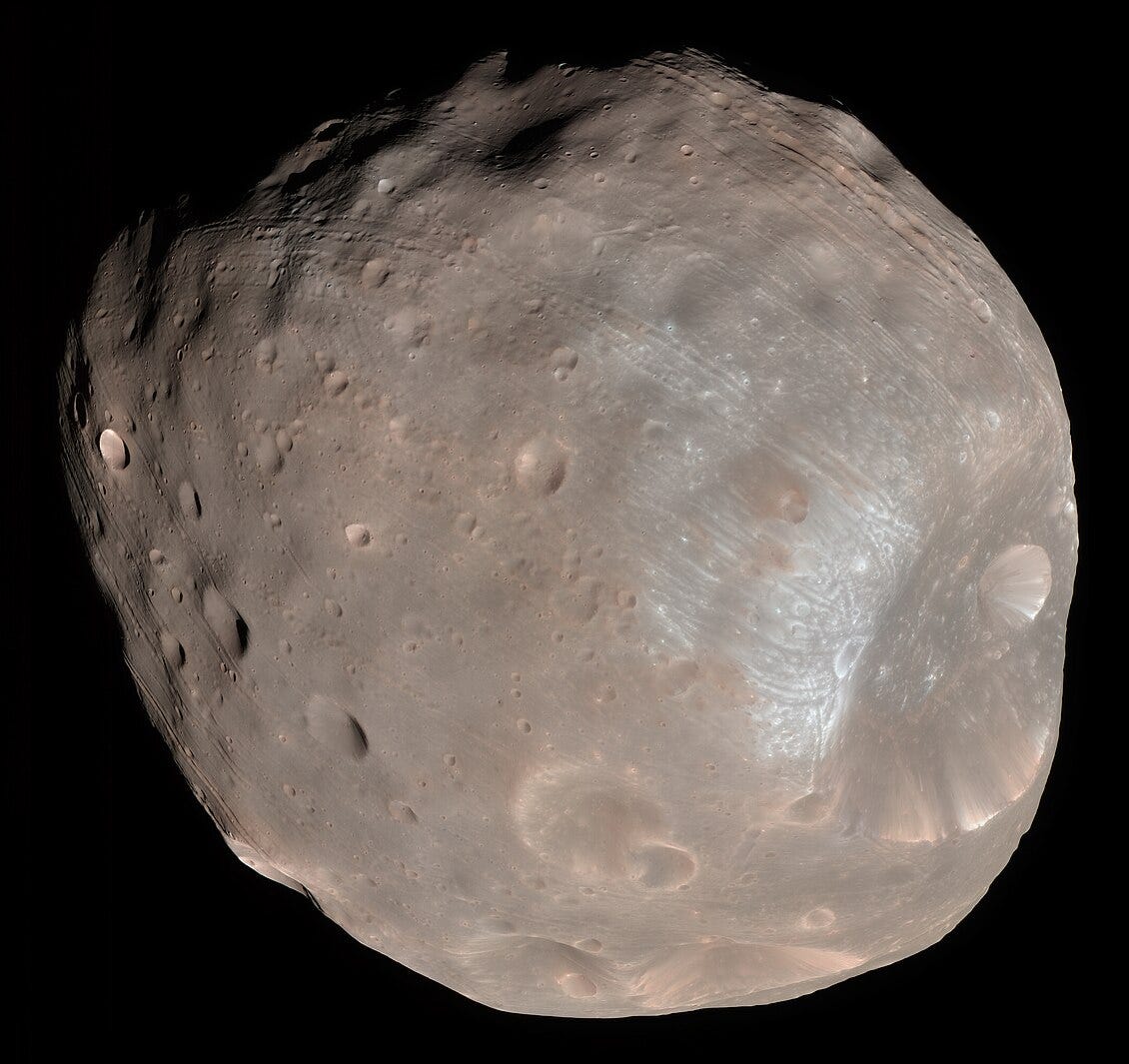
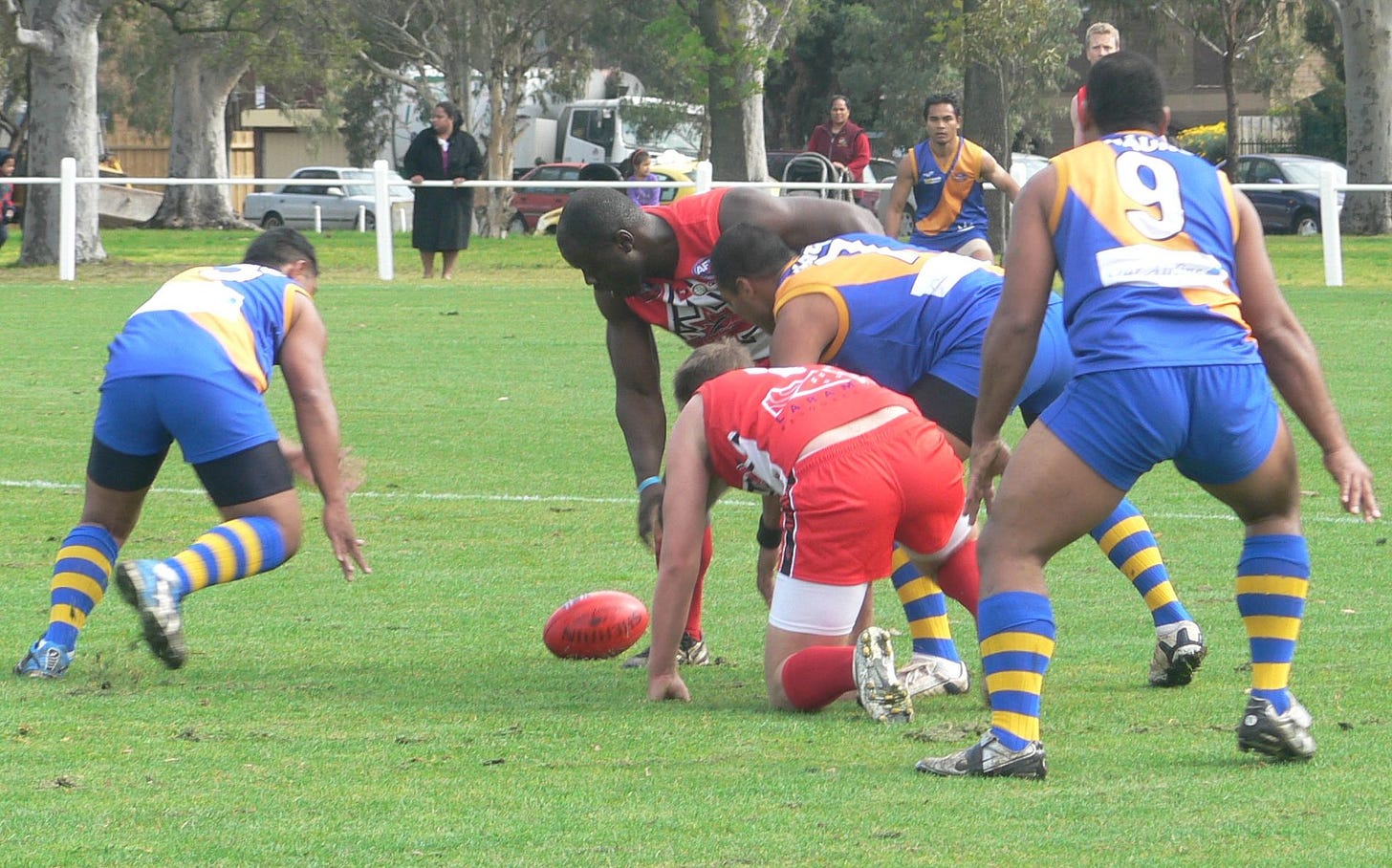
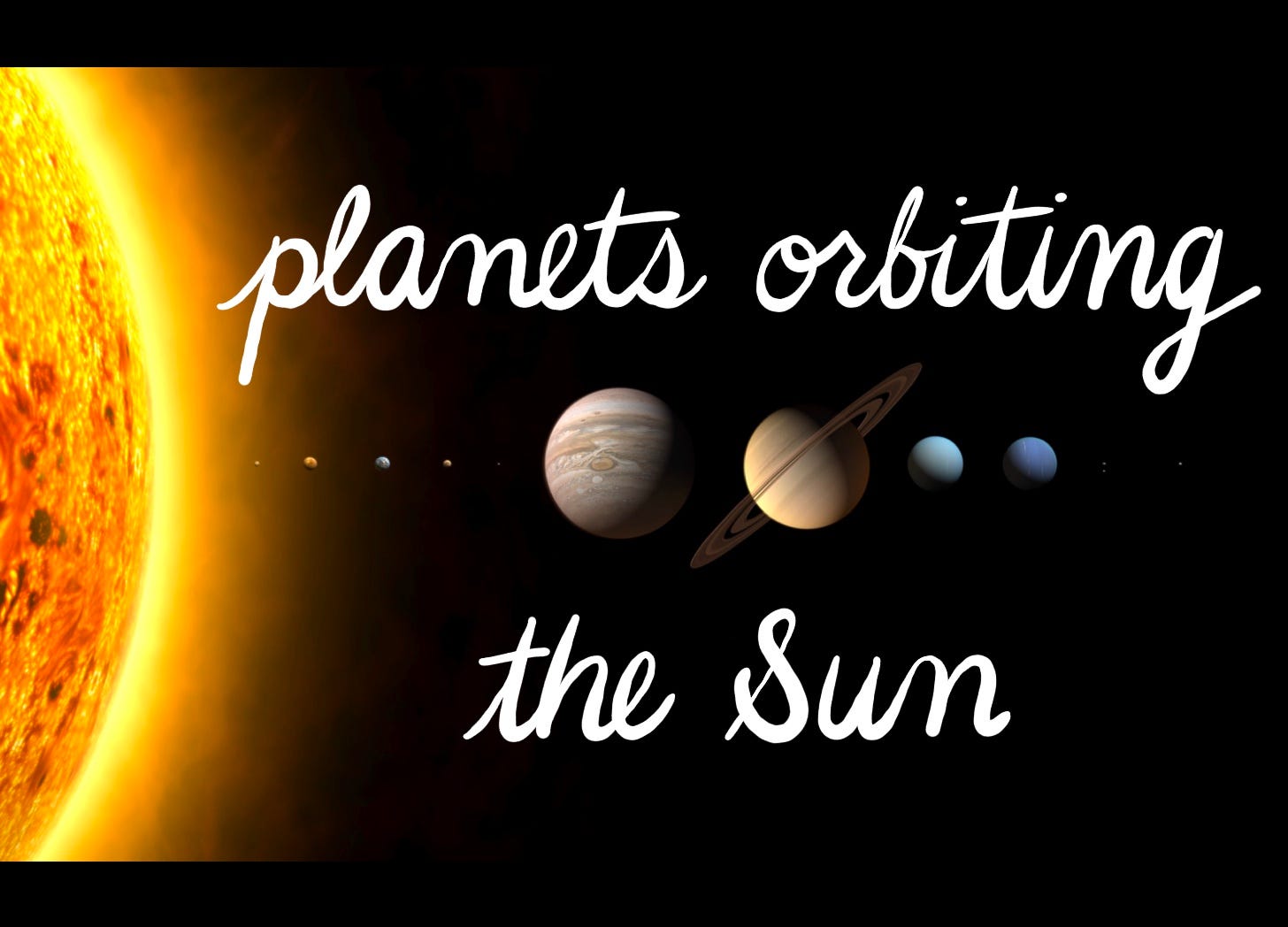
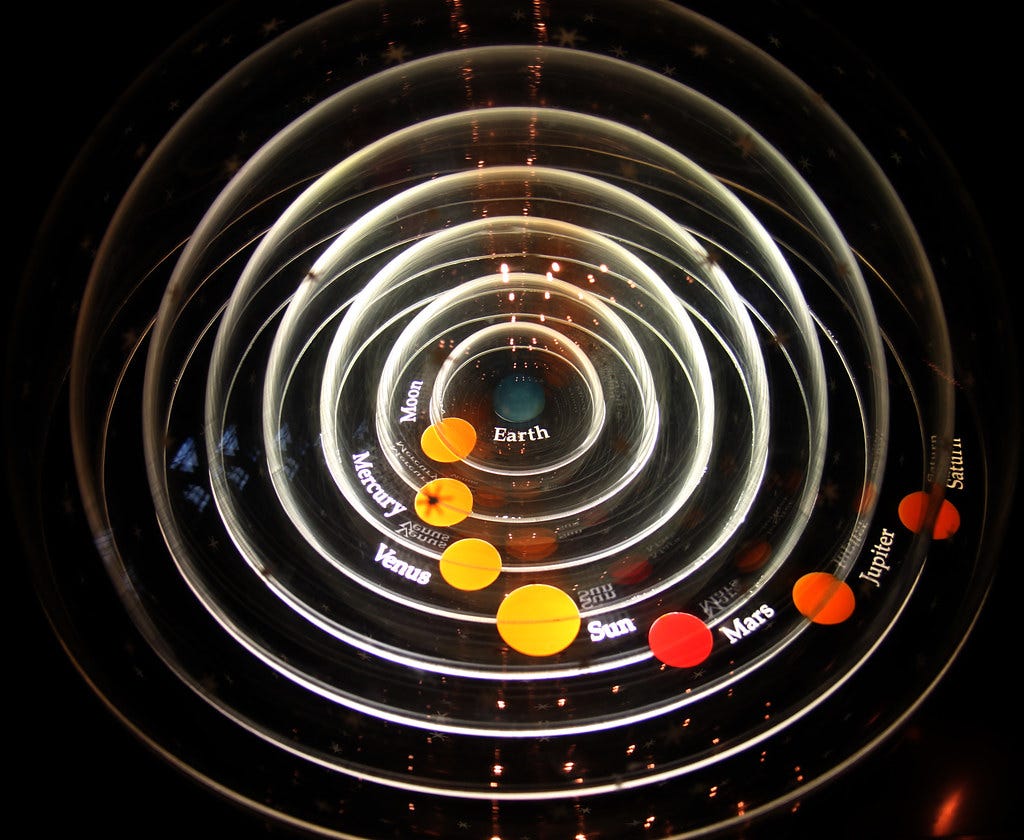
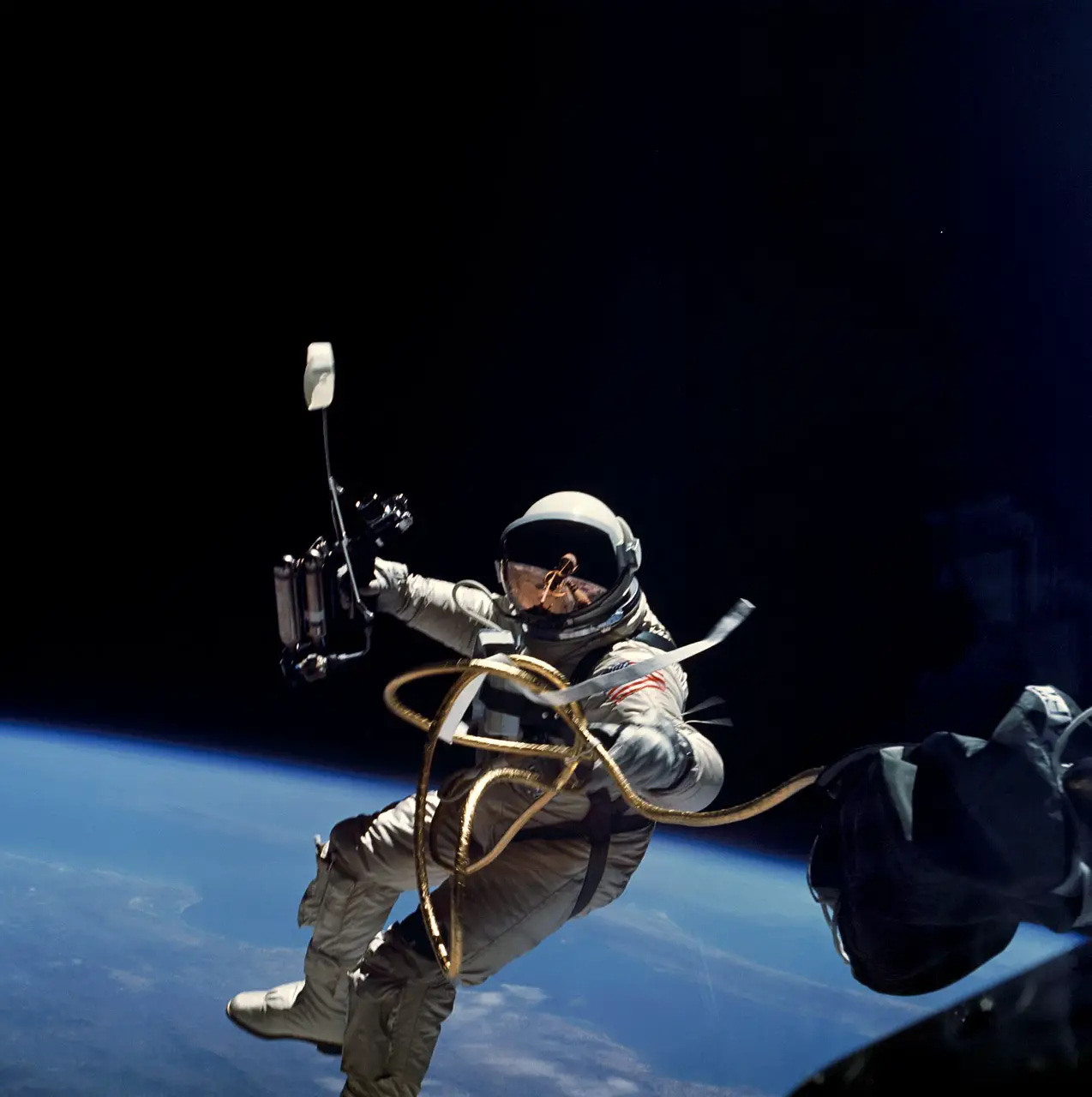


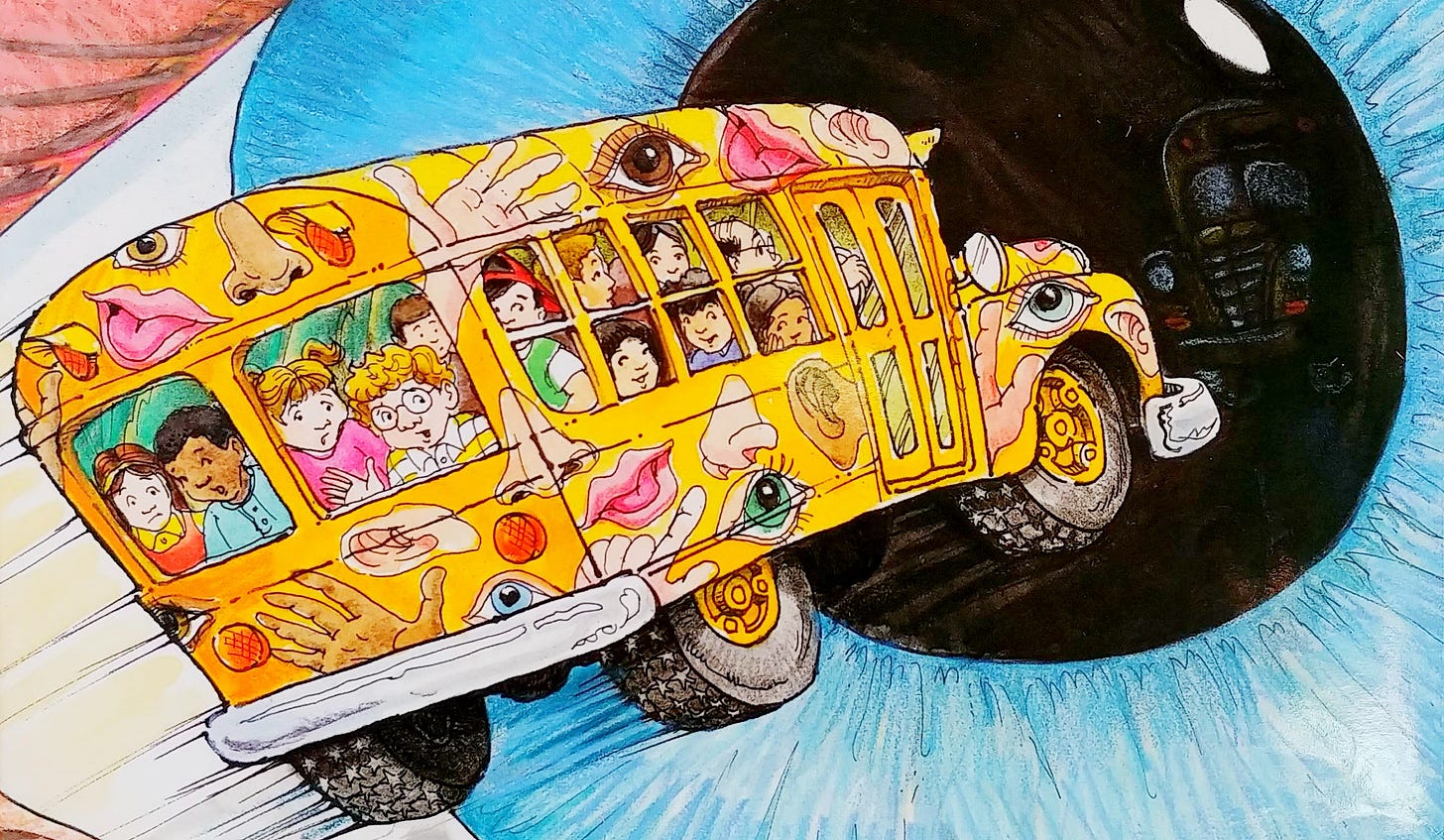
When Egan said any subject could be taught to any child at any stage of development, how young do you think he meant?
My oldest son is not quite two, and he loves to walk past our local elementary school and see their painting of the solar system along the wall. I'm happy to name all the planets for him, but I'm not sure how much that actually teaches him.
For now, my main strategy is to focus on things he sees in the real world. For example, he recently realized that he has a shadow. So I'll point out that his shadow points in different directions or gets longer or shorter at different times of day.
Noticing things about the world and asking why seems to me like the beginning of science, even if he's still too young to understand the explanation.
" A lot of this sounds very avant-garde, but I worry that it would really confuse kids, especially young ones.
You know who else was confused? Aristotle. Ptolemy. Copernicus. Galileo. Even Newton.²³ When it comes to the big picture of the Universe, if you’re not confused, you’re not paying attention."
The other big benefit to comfort with confusion is that it shows children that confusion is a natural part of the learning process, and not a signpost that says "STOP, wait for the teacher."
When confusion is part of the storytelling of science, and we're honest a lot of our theories *conflict* with day to day experience and require something beyond what you passively observe, we're representing the call to adventure of science well.